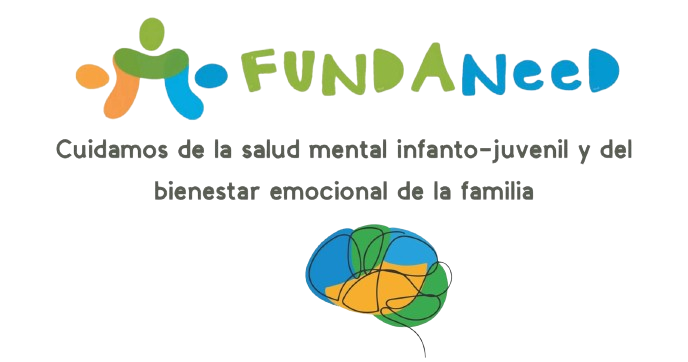What is meant by pharmaceutical co-payment?
The pharmaceutical co-payment is the amount we pay when we buy medicines prescribed by the public health system. It is our financial contribution, as patients, to buy prescription medicines and other health products. But not everyone pays the same amount. The financial contribution varies between 10% and 60% of the value of the medicine depending on our income and other circumstances (disability, unemployment, etc.).
How is the pharmaceutical co-payment calculated for each person?
The Royal Decree Law (RDL 16/2012 of 20 April 2012), on the sustainability of the National Health System, established that citizens’ contribution to the pharmaceutical benefit is no longer related exclusively to their classification as active or pensioner, but is also proportional to their level of income, updated annually according to the general and savings tax base in the last personal income tax return.
Citizens do not have to provide any documents to prove their income level.
Every year, the Tax Agency provides the INSS (National Social Security Institute) with data on users’ income levels from the income tax return for the last tax year. Based on this data, the INSS assigns the pharmaceutical contribution to each user and communicates it to the Health Services of the autonomous communities. Pharmacies can consult the contribution bracket assigned upon presentation of the health card.
How do I know how much of a pharmaceutical co-payment I am entitled to?
It should be borne in mind that the annual income that establishes our contribution bracket is, at least, from the previous year.
For example, the pharmaceutical contribution in the first months of 2022 is established by the last income and wealth tax return, filed in 2021 and corresponding to the financial year 2010. After filing the tax return in 2022, the updated annual income to establish the contribution will be that of the last tax return, corresponding to the financial year 2021.
If you do not agree with the contribution percentage or the monthly contribution limit assigned, you can go to the User Care Unit of your Health Centre so that they can inform you of the type of user (TSI code) and income level that the INSS has assigned to you.
If you do not agree, they can inform you of the complaint procedure that you should follow at the CAISS (Social Security Care and Information Centres).
Pharmaceutical co-payment exemption
Some people are exempt from making the pharmaceutical co-payment, accessing medicines free of charge for different situations. The following users are exempt from the co-payment:
- People affected by toxic syndrome.
- People with disabilities in the cases contemplated in their specific regulations.
- Minors with a recognised degree of disability equal to or greater than 33%.
- Persons receiving social integration income.
- Persons receiving non-contributory pensions.
- Persons receiving the minimum living income.
Persons receiving the Social Security financial benefit for a dependent child or minor in permanent foster care or guardianship for the purpose of adoption. - Social Security pensioners:
–whose annual income is less than 5,635 euros or
–who receive an annual income of less than 11,200 euros and who are not obliged to file an income tax return. - Unemployed persons who have lost the right to receive unemployment benefit for as long as their situation persists.
- Treatment resulting from an accident at work or occupational disease.
Are all people with disabilities exempt from the pharmaceutical co-payment?
Not all people with recognised disabilities are exempt from pharmaceutical co-payment (I anticipate your possible queries).
Those persons with disabilities affected by Chapter I of the Royal Legislative Decree 1/2013, of 29 November, which approves the Revised Text of the General Law on the Rights of Persons with Disabilities and their Social Inclusion, are exempt.
- Persons with disabilities who, because they do not work, are not included in the scope of application of the Social Security System.
- Minors with a recognised degree of disability of 33% or more are also exempt.
- In addition, persons with disabilities who are not entitled to health care in any other way are also exempt from contributions through the granting of non-contributory pensions, which are also exempt from contributions.
Does the pharmaceutical co-payment exemption for children with disabilities apply in any region of Spain?
The exemption of pharmaceutical co-payment for minors with disabilities was a commitment included in the General State Budget for 2021. Therefore, although the competence in health is transferred to the different autonomous regions of Spain, free medicines for minors with a certificate of disability equal to or greater than 33% is applied throughout the national territory.
Requirements for exemption from pharmaceutical co-payment:
- Be under 18 years of age
- Have a valid certificate of disability equal to or greater than 33%.
Important: income and family assets are not taken into account.
How to obtain the pharmaceutical co-payment exemption for your child with a disability at your health centre?
In principle, the exemption was to be automatic for all those under 18 years of age with a disability certificate equal to or higher than 33%, who would be included in the TSI001 code through their social security card, as belonging to persons who do not have to make a financial contribution to purchase a medicine.
Apply for exemption from the pharmaceutical co-payment for disabled minors.
Some primary care centres are providing a solution for families who are still paying for medicines by including the code TSI001 in the system. To do this, you must go to your health centre with your child’s health card and the disability certificate.
If your health centre is unable to resolve the problem, we will go to plan B: apply directly to the Social Security, as I will explain in the next section.
How to apply for an exemption from the pharmaceutical co-payment for children with disabilities?
If you need to apply for an exemption from the pharmaceutical co-payment for your disabled child, you can do so in person or online at the Social Security.
Documents required to apply for free medication for children with disabilities
Como en la mayoría de gestiones, debes presentar:
- Document of the minor (DNI / NIE).
- Valid Disability Certificate, equal to or greater than 33%.
- Document that accredits your relationship with the minor (Family book or birth certificate in the case of children, or Document that accredits your role as guardian/legal guardian or foster carer of the minor).
- Completed and signed application form.
Reclaim the amounts paid for medicines for your child with a disability.
If since the entry into force of the exemption from pharmaceutical co-payment for children with disabilities (1/1/2021) you have had to pay for any medicine prescribed by the public health system for your child, you can apply for reimbursement using a form that can be provided at your Health Centre or through the website of your Autonomous Community.
Download Free Pharmacy Application for minors with disabilities



Comments are closed.